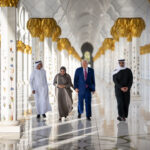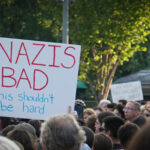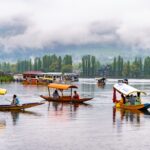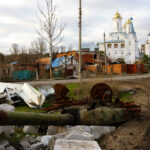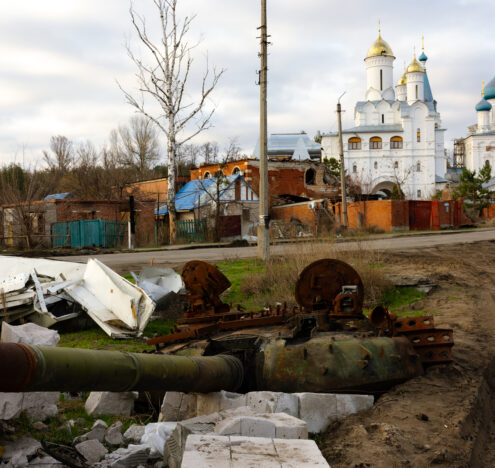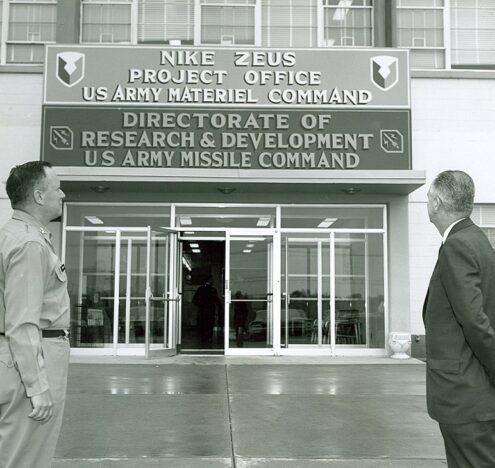Sierra Leone, a West African nation transiting from a brutal civil war, is now heavily polarized following a fiercely contested presidential election held on June 24, 2023. Pitted against each other are the supporters of President Julius Maadi Bio and his main challenger, Samura Kamara.
This is Sierra Leone’s fifth election since the civil war ended in 2002 and the third self-administered poll in the country since 2012. The UN organized previous elections. Since then, Sierra Leone has slowly marched toward democratic stability, though some would argue that last month’s poll was a bump on the road.
Growing Discontent
According to the Electoral Commission of Sierra Leone or ECSL, Bio, 59, of the Sierra Leone Peoples’ Party, was re-elected with 56.17% while his top rival Kamara, 72, of the All People’s Congress, came second with 41.16%. Bio won by a narrow margin, as a candidate needs more than 55% for outright victory. But in a swift reaction, rival candidate, Kamara has called the election’s outcome “daylight robbery,” an accusation that appears to be reinforced by foreign electoral observers, like the EU observers, which reports that the vote lacked transparency. Cameron Hume, Head of the Carter Center’s election observer team, said, “We are not convinced that the integrity was maintained throughout the elections.” Critics have also alleged that Bio hand picked ECSL members without input or oversight.
Bio is a retired army brigadier and a former West African peacekeeper in nearby Liberia who took part in a military coup that toppled the democratic government in Freetown in 1992. Following disagreements within the ruling council, Bio conspired to overthrow the military junta in 1996, paving the way for free elections that year. After a spell of self-imposed exile, he returned to Sierra Leone to run for president in 2012 and again in 2018, which he won following a run-off. This is his second and final term according to Sierra Leone’s constitution, which grants a maximum of two five-year terms for presidents.
Simmering discontent among the country’s youth came to the fore in August 2022, when mounting frustration at the ailing economy, rising unemployment, and a cost of living crisis flared into deadly protests.
Bio has immediately hit the ground running but this has not stopped the grumbling at the election’s outcome. Rather there is a growing feeling that Bio is not willing to entertain dialogue on the transparency issues, neither is he concerned about looking credible or legitimate. “He just wanted to be returned to power without more fuss. That is also the advantage of a system where the new president is sworn in immediately after the results are announced. There is no room left to argue because the president controls the courts and thus the outcome of any challenges,” Catherine Bolton told Inkstick.
Bolten, a Professor of Anthropology and Peace Studies at the University of Notre Dame has written two books and over a dozen articles on Sierra Leone. Her latest book, “Serious Youth in Sierra Leone: An Ethnography of Performance and Global Connection,” examined how generational anxieties among young people about education and job prospects are unfolding starkly in Sierra Leone under the hanging cloud of the civil war that raged between 1991 and 2002. Based on a study of urban youth in Makeni — the economic center of the Northern Province of Sierra Leone — Bolton argues that the country’s youth’s desire for steady incomes, the ability to start families, and be respected have been grossly misunderstood.
Simmering discontent among the country’s youth came to the fore in August 2022, when mounting frustration at the ailing economy, rising unemployment, and a cost of living crisis flared into deadly protests. The protests in Freetown and several northern towns resulted in more than 21 deaths as security agents fired at protesters. Rich in alluvial diamonds and gold, Sierra Leone is the seventh-poorest African country with a gross national income per capita of $500. Nearly 60% of its population of more than 7 million are facing poverty. It also has one of the highest youth unemployment in West Africa.
Bio, who rode to power in 2018, promising to fix poverty and unemployment, has been blamed for the crisis. According to the ECSL, about 52.4% of registered voters, or 1.78 million people, are aged between 18 and 35 years old. Hoping to benefit electorally as discontent built up, the opposition has been left heartbroken and perplexed by the election’s outcome.
“I am very surprised that Bio won,” leading opposition figure, Catherine Aminatta Higgins told Inkstick. “Sadly, the reasons he won are due to rigging and violence,” she added. Catherine is the daughter of late post-independence politician, Christian Alusine Kamara-Taylor popularly known as C.A., who, together with others, founded the All Peoples Congress, which came second in the elections.
Better The Devil You Know, Right?
“I feel no doubt about the victory of the president,” Amadu Khan told Inkstick.
Khan, 20, who lives in Freetown, left secondary school in 2021 and dreams of studying agricultural extension at Njala University. He believes that the June 24, 2023 elections represented the wish of the majority of Sierra Leoneans. But as some would argue, ethnic identity trumps ideology in Sierra Leonean politics. Political actors know this and this explains why the two major political parties, the Sierra Leone Peoples’ Party and the All Peoples Congress draw their strength from rival ethnic bases in the country. For instance, the southern and eastern regions are strongholds of the Sierra Leone Peoples’ Party, while the Northern and Western regions support the All Peoples Congress.
During the 2018 presidential run-off, Bio not only won 87% of the vote in the southern and eastern districts compared to Kamara, he also won 78% in the North and West, tripling his share of the vote in the North from 6% in 2012 to 18%. But last month’s election shows that a mix of factors determined voters’ choices. While some voted on the basis of ethnic and party considerations, many voters preferred to trust the devil they knew.
Although the All Peoples Congress is yet to reveal what it would do next, there is apprehension that electoral grievances can stoke discontent over economic and social inequality.
“Sierra Leone politics is based on the idea of having a turn to eat the national cake. The APC [All People’s Congress] had ten years under Koroma, and now the SLPP [Sierra Leone Peoples’ Party] supporters will do anything to keep their party at the table, whether or not they actually feel that the county is doing well. It’s not the country itself that appears to be at stake as much as how much worse off they might be if their own party is not in power. And so they vote the party line regardless,” Bolton told Inkstick.
This trend reflects fear of the unknown among voters rather than confidence that the democratic process can bring the best-qualified person who actually has the country’s interests at heart to power. “They vote continuity out of fear of what carnage someone else might inflict if they come to power,” she added.
A Critical Phase
The next few months may prove challenging for Sierra Leone, depending on how the post-election controversy is handled. “My advice to the opposition party is that they should maintain peace and wait for the next election,” Khan added. He pointed out that when the Sierra Leone Peoples’ Party lost the election in 2012, it went ahead to challenge the poll in court. But this time around, the opposition does not trust the court to act independently. “We are not going to court, we don’t trust the judiciary,” Lansana Dumbuya, the secretary-general of Kamara’s party, the All Peoples Congress, said in a recent statement.
Although the All Peoples Congress is yet to reveal what it would do next, there is apprehension that electoral grievances can stoke discontent over economic and social inequality. But then, this is also up to what the president does. Bio has promised to create jobs but it is yet to be seen how he will achieve it. Beyond rhetoric, he would need to move quickly over the coming days to build consensus and national unity.
“Elections are not democracy, despite what most people think. The will to actually represent the people and the interests of the country are key. President Bio needs to invite the APC [All Peoples Congress] to the table and let them speak. I don’t think that asking for an international mediator is out of the question at this point. A country doesn’t need to be at war to benefit from peace talks,” Bolton told Inkstick.
Running underneath the growing apprehension over Sierra Leone’s post-election tension is the country’s civil war legacy. The civil war, which lasted between 1991 and 2002, was one of the bloodiest in Africa, resulting in more than 70,000 casualties and 2.6 million displaced in a nation of four million people. The conflict was particularly violent and long because both the Foday Sankoh-led rebel group, Revolutionary United Front, and the Sierra Leone government were funded by “blood diamonds” mined with slave labor. But the war ended over two decades ago and there are a lot of young people with no memory of it, Bolton argued. “People are too concerned about getting their daily bread to be coerced into more mass violence. At least I hope this is the case,” she added.
In the meantime, Khan’s dream of a university education is hampered by a lack of financial support. Like most Sierra Leonean youth his age, he qualified for university in 2021 but has met difficulties raising money for fees and books. “I need about 10 million Leone ($508 USD). The university fee is 7 million Leone ($355 USD) but I need to buy books.” Khan lost his father about 6 years ago and has been left to fend for himself since then. “If he was alive, I would not be in this difficulty. Anyway, that is life but all is not lost yet. I will keep the fire burning,” he added with frustration.


